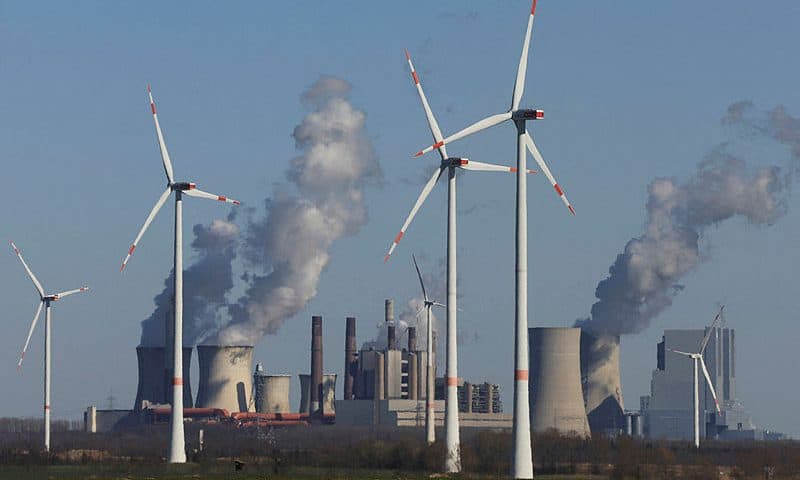Nine nations bordering the North Sea announced plans Monday to massively increase offshore wind power in the coming decades as part of an effort to combat climate change and become independent of fossil fuel imports.
BERLIN — Nine nations bordering the North Sea announced plans Monday to massively increase offshore wind power in the coming decades as part of an effort to combat climate change and become independent of fossil fuel imports, particularly from Russia.
German officials said members of the North Seas Energy Cooperation aim to expand wind power generation in the region to 76 gigawatts by 2030.
Subsequent targets are for 193 gigawatts of wind power in the North Sea by 2040 and 260 gigawatts by mid-century. Germany’s Economy and Energy Ministry said current generation capacity in the region is less than 20 gigawatts.
The countries that agreed to those goals include Belgium, Denmark, France, Germany, Ireland, Luxembourg, the Netherlands, Norway and Sweden. The United Kingdom, whose territory is surrounded by the North Sea and which has significant offshore wind plans of its own, is not a member of the group since leaving the European Union in January 2020.
Last month, seven European countries bordering the neighboring Baltic Sea committed themselves to a seven-fold increase of offshore wind power production there by 2030.

